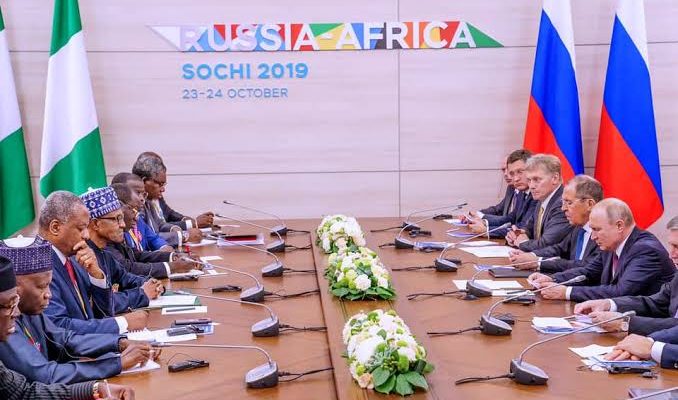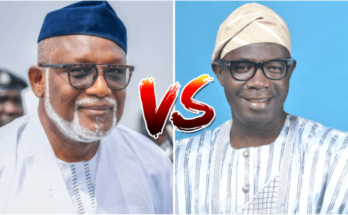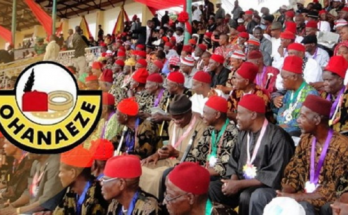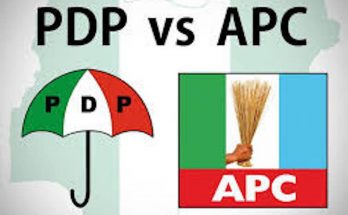
Recently, President Muhammadu Buhari returned from London after a one-day UK-Africa Economic Summit organized by the British Prime Minister Boris Johnson. Other African heads of states were also in attendance. Later in the year, these same African heads of governments will be hosted in Germany and France for similar events in what appears Europe is wooing Africa again in economic partnerships.
But the unsavoury history between the two continents that has hardly shifted from that of master-servant, colonizer-colonized, developed-developing and sometimes under-developing, teacher-student, keen economic watchers say, may end the way of similar summits that leave Africa perennially tied to the economic apron-strings of Europe. Africa’s slow pace of development continues to its bane in negotiating beneficial terms with the rest of the world.
Economists, financial, and local manufacturing experts are beginning to fear and question the rate at which African leaders are lured to Europe seemingly in quest for economic salvation for their impoverished countries. Ordinarily, mutually benefiting economic ties are supposedly discussed, but exactly what benefits do Africa countries derive from these summits? But looking back at the skewed colonial ties that exist between African countries and Europe particularly, many wonder if these summits are not Europe’s second attempts at economic recolonisation as they seek markets for their finished goods and services, with Africa not able to add value to its natural resources.
It was one radio commentator who aptly described the recent summit British Prime Minister Boris Johnson held with African heads of states, when he said it was akin to the principal of a school assembling his class prefects to a meeting in his office to tell them how best to ensure sanity in their respective classes. This may sound a bit harsh, but many economic watchers will have a cynical chuckle at the analogy.
Last year Japan hosted African leaders to a similar summit. Trade deals were said to have been struck. But for Nigeria, it was a barren summit. While Ghana was able to sign a deal with Japan’s auto giant, Toyota, Nigeria merely made up the number of attendees. Governor of Kwara State, Abdulrahman Abdulrazaq, who was part of Buhari’s delegation, is yet to get over the failure Nigeria recorded in that summit. It was as though the Buhari delegation was on tour of that Asian country.
This year two of such summits are scheduled to take place. While Germany will host one, France is also set to host the other later in the year. And the questions arise: what does Nigeria stand to benefit from the plethora of summits that largely originate from outside the continent? Is the country rightly positioned to maximise whatever gains are supposed to accrue from the summits? Is Nigeria in fruitless search for foreign direct investment (FDI) while losing sight of homegrown investors who need government’s help to leapfrog the economy? Apart from acute infrastructural deficit like power, rail, and roads, isn’t lack of patriotism even from the highest official quarters a handicap to local production capacity and the continuing craving for these foreign-induced summits?
For instance, while Nigeria’s president was at Japan-Africa summit as a mere tourist, with neighbouring Ghanaian president doing brisk and serious business with Toyota, South Africa’s cable TV company, MultiChoice, organisers of Big Brother Niaja (BBNaija 2019), rewarded winner of its reality TV show, Mercy Eke, with a made-in-Nigeria Innoson Sports Utility Vehicle (SUV). Sadly, among the wasteful fleet of cars in every of Mr. President’s convoy to the airport enroute Japan and the U.K. summits or elsewhere, there would not be one car from the Nnewi-based Innoson auto maker or one from Kaduna-based Peogeut automobile (PAN), another Nigerian auto brand.
For a president who openly campaigned for Patronize made-in-Nigeria goods, this is appalling commentary of a lack of patriotism from the number one citizen. Ironically, Buhari’s Ministry of Foreign Affairs recently launched ‘Nigeria First’ as centrepiece of its foreign policy direction. But critics would readily point it out as a poor mimicry of U.S. President Donald Trump’s ‘America First’ agenda that has placed America on a solid economic footing.
A ‘Nigeria First’ coming from the Ministry of Foreign Affairs is a misnomer in the first place. Of what serious economic bearing does a foreign policy have on an ailing economy if conditions such as infrastructure that make local production and manufacturing are still abysmally poor? How does that translate to jobs and economic growth when the country’s economic fortune is being ceded away to foreign investors while local investors like Innosom and PAN are consciously neglected and overlooked?
In terms of employment generation, which acutely challenges this administration, has government thought of the huge number of jobless youths that would be taken off the streets if Buhari makes an Executive Order for all federal ministries, departments and agencies (MDAs) to satisfy their vehicular needs by buying either from Innoson or PAN only? The Nigerian military that requires rugged equipment already patronises Innoson anyway.
So, why not the MDAs? What about the state governors who hop on expensive flights overseas in quest of investors abroad? Why is it so hard for them to also buy all their vehicular needs from these two automobile brands? Before the Supreme Court booted Emeka Ihedioha out of office, he had bought 27 Toyota Landcruiser SUVs for all the lawmakers in Imo State and hundreds of Ford vehicles for the security forces. Ihedioha shunned next-door automobile company, Innoson, and decided to patronize automakers in faraway Japan and America. Ihedioha was not alone in this economic waste and economic sabotage. It is a nationwide malaise among the political and elite class of Nigeria who bemoan the country’s woes but continue to worsen them with their sabotaging actions.
But it’s not all gloom, as four British companies signed business deals with Nigeria on the sidelines of the inaugural UK-Africa Investment Summit in London. The deals were among the several others sealed between U.K. companies and their African partners.
In the case of Nigeria, Low Energy Designs won an export contract to install street lighting in Oyo State while Savannah will invest £315 million in the acquisition and investment in gas assets in Nigeria. Another British company Tex ATC is expected to install five airport control room towers worth £2 million in different parts of Nigeria while Trilliant got a deal to install £5 million of Smart Metering for Abuja DisCo.
“Africa represents a huge opportunity for U.K. businesses,” said Secretary of State for International Trade, Liz Truss MP. “So it’s brilliant to see so many British firms paving the way in trading and investing in the region today to drive growth, create jobs and boost vital infrastructure.
“We want the U.K. to be the investment partner of choice for African nations, and our world-leading expertise in finance, tech, and innovation, makes the UK and Africa natural partners for prosperity.”Managing Director of Cowry Assets Ltd, Mr. John Chukwu, said these summits, which are initiated by western economic powers serve as markets for their industrial-based goods. He stated that Africa’s economic renewal is tied to such external support like foreign capital and technology, adding however that Africa would well forge ahead regardless.
“Development cannot be indigenously achieved n Africa and African leaders are beginning to realize this, that it cannot come out of poverty through grants and handouts, but to trade ourselves out of poverty. So African leaders are beginning to create environments to attract investments like Rwanda, Ethiopia, and Ghana; that they need to position themselves to attract investments.”
Chukwu debunks claims that government was not patronizing local investors enough, saying Manufacturers Association of Nigeria (MAN) is a major beneficiary of government’s support. He said government’s policy on auto manufacturing is robustthrough low tariffs, but wondered if local capacity in that field was strong enough to absolve the level of patronage required.
Chukwu, however, decried the country’s infrastructural deficit as disincentive to the foreign investment drive. He cited the instance of African countries like Rwanda, Ethiopia, and Kenya that were beginning to catch up on infrastructure and challenged Nigeria to quickly up its ante in that director so both local and foreign investments could boom.
Before the summit, Nigeria’s President Muhammadu Buhari had lobbied the British community to invest in the Nigerian economy, saying, “For my country, greater U.K. engagement in its economy would bring jobs to under-tapped sectors such as agriculture and manufacturing.
“Millions of highly skilled, English-speaking but underemployed young people, are eager to work but without the opportunities that foreign investment can bring to create jobs and build businesses. The U.K. said the deals signed on Monday show how “we are building on that to secure a lasting commercial partnership of mutual benefit.”




